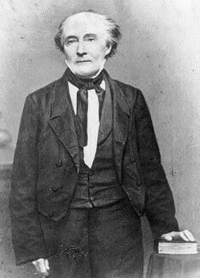Gilbert C. Walker
| Gilbert Carlton Walker | |
|---|---|
 |
|
| Member of the U.S. House of Representatives from Virginia's 3rd district |
|
|
In office March 4, 1875 – March 3, 1879 |
|
| Preceded by | John A. Smith |
| Succeeded by | Joseph E. Johnston |
| Chairman of the House Committee on Education and Labor | |
|
In office March 4, 1875 – March 3, 1877 |
|
| Preceded by | James Monroe |
| Succeeded by | John Goode, Jr. |
| 36th Governor of Virginia | |
|
In office September 21, 1869 – January 1, 1874 Provisional Governor from September 21, 1869 – January 1, 1870 |
|
| Lieutenant |
John F. Lewis John Lawrence Marye, Jr. |
| Preceded by | Henry H. Wells (as Provisional Governor) |
| Succeeded by | James L. Kemper |
| Personal details | |
| Born | August 1, 1833 Susquehanna County, Pennsylvania |
| Died | May 11, 1885 (aged 51) New York, New York |
| Resting place | Spring Forest Cemetery, Binghamton, New York |
| Political party | Republican (before 1870) |
| Other political affiliations |
Democratic (after 1870) |
| Alma mater | Hamilton College |
| Profession | lawyer, banker |
Gilbert Carlton Walker (August 1, 1833 – May 11, 1885) was a United States political figure. He served as the 36th Governor of Virginia, first as a Republican provisional governor between 1869 and 1870, and again as a Democratic elected governor from 1870 to 1874.
Walker was born in South Gibson, Susquehanna County, Pennsylvania. He graduated from Hamilton College in Clinton, New York.
Walker studied law in 1854 and was admitted to the bar in 1855. He practiced in Owego, Broome County, New York, from 1855 to 1859 and in Chicago from 1859 to 1864. He moved to Norfolk, Virginia, in 1864 and practiced law and banking.
Walker served as Governor of Virginia from 1869 to 1874. He also served as a Democrat in the Forty-fourth and Forty-fifth Congresses. In the Forty-fourth Congress he was chairman of the Committee on Education and Labor. He did not stand for reelection in 1878.
Walker settled in Binghamton, New York, in 1879 and resumed his private legal practice. He moved to New York City in 1881 and served as president of the New York Underground Railroad Company.
He died in New York City. His remains were returned to Binghamton for interment in Spring Forest Cemetery.
...
Wikipedia
